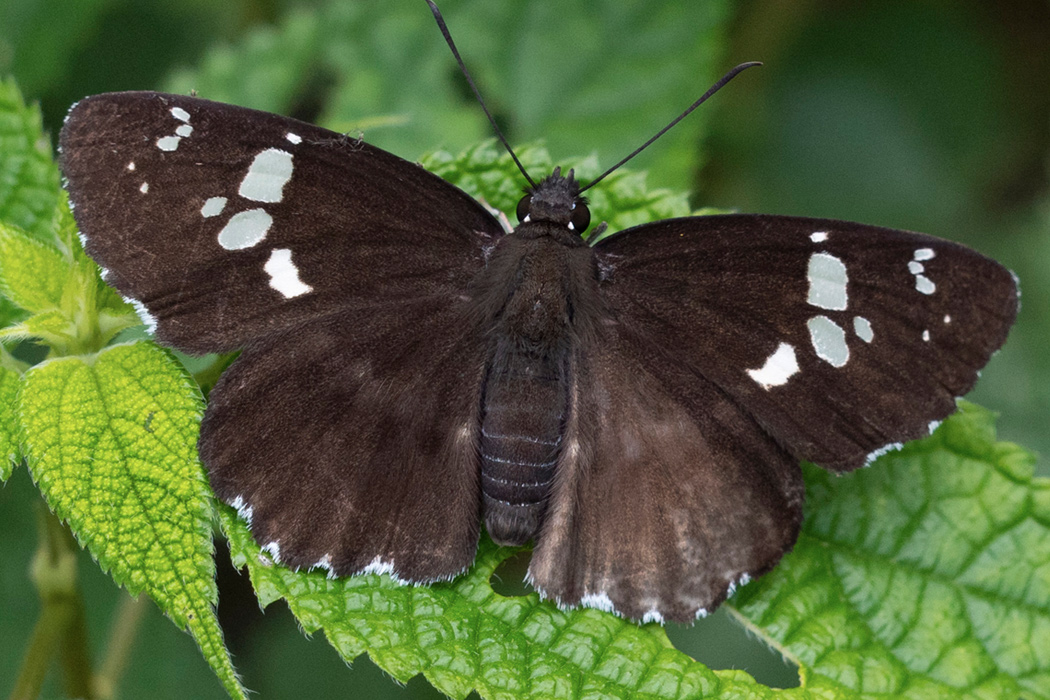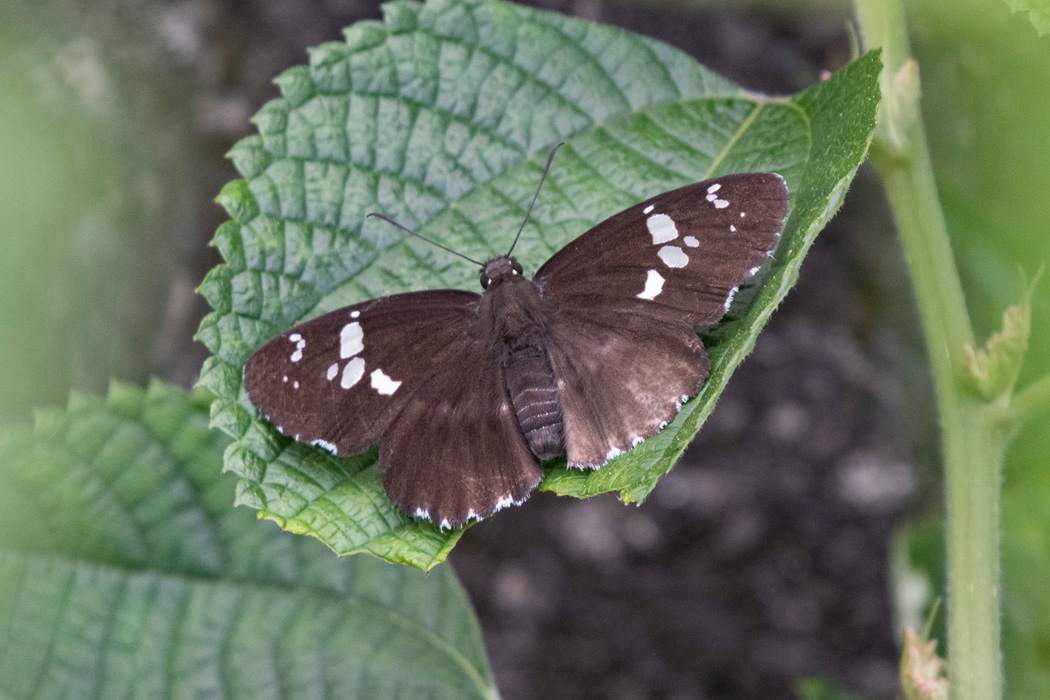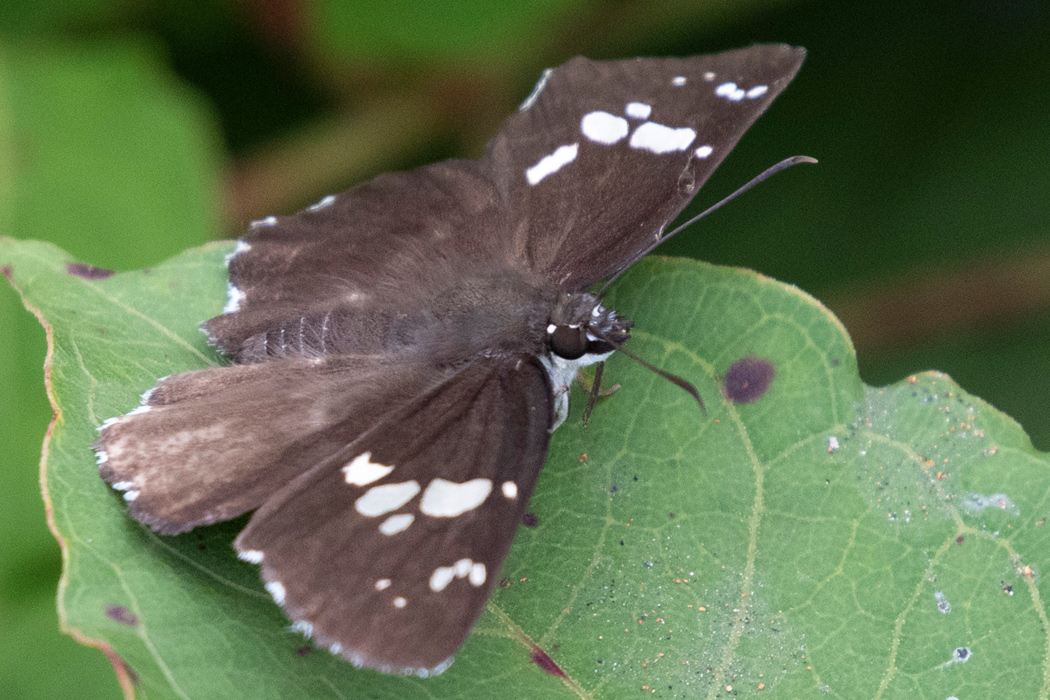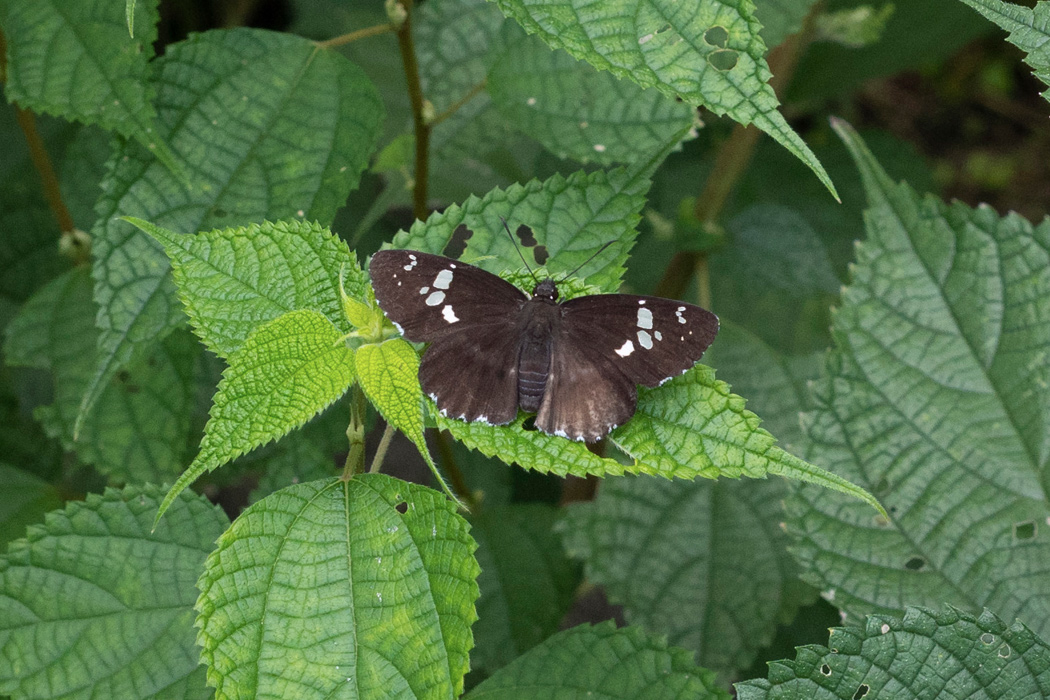
Daimio tethys
Hensericho with a stylish white crest.
| Scientific name | Daimio tethys |
| English name | Daimio tethys |
| Japanese name | 大名挵 |
| Classification | Insecta |
| Classification details | Lepidoptera Hesperiidae |
| Full length | about 20mm |
| Distribution | Distributed from East Asia to Southeast Asia. From Hokkaido to Nagasaki in Japan. |
Characteristics
Hesericho has a characteristic white crest on a dark brown ground. There is a sparse white patch in the middle of the forewing. The wing margins are also whitish. The surface is dark brown overall, but the belly is white.
Kanto type and Kansai type
Daimyo Seseri is known for its different patterns on the east and west sides of Sekigahara. The Kansai type has a white band on the hindwing, while the Kanto type does not. The individual in the photo is the Kanto type, but you can feel a faint white band like the lines after erasing it with a blackboard eraser, but you can't tell unless you say it.
Origin of Daimyo Seseri's name
There are various theories as to why Daimyo Seseri bears the name of 'daimyo' (feudal lord). It is generally believed that the white crest on the forelimbs resembled the pattern of the haori and hakama worn by feudal lords during the Sengoku period.
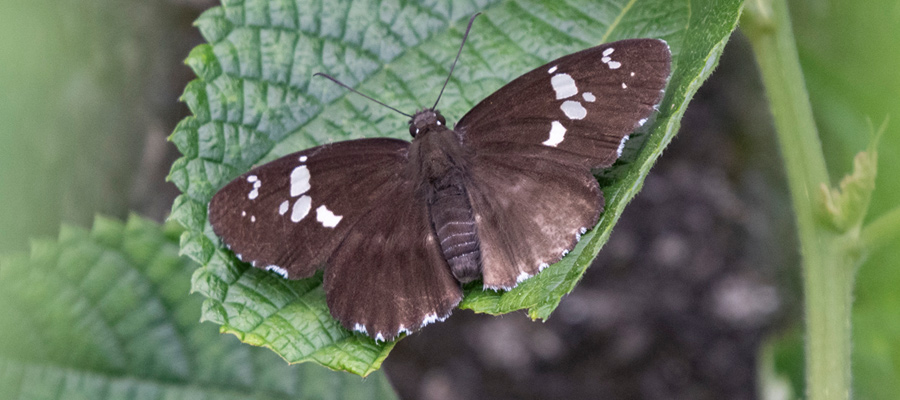
Ecology
Adults emerge from around May, and can be seen in thickets and grasslands. The individual in the photo was taken flying around the grass on the riverbed of the Tama River. The larvae eat plants of the Dioscoreaceae family. It overwinters as a larva.
It has a distinctive appearance when it perches on a leaf. While Ichimonjiseri perches with its wings upright, Daimyōseri perches with its wings open horizontally.
Habitat
I took a picture of an individual that was flying in the grass on the riverbed of the Tama River. It flies quickly, but the distance it flies at once is not long, so I had a chance to photograph it. Since it is a Kanto type, the white band on the hindwing is not visible, but if you take a picture and take a closer look, you can feel the trace. The wing patterns are not flashy, such as eyeball patterns or leopard prints, but the colors are subdued and surprisingly fashionable.
Pictures
Introducing a picture of Daimio tethys.

Picture book
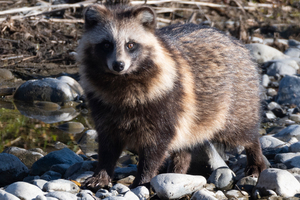
Japanese raccoon dog
The face is bordered with white fur and the area around the eyes is dark brown.......ead more.

---
Camouflages with seaweed on its head.......ead more.

---
running brown band.......ead more.

---
Puffer fish has poison in its internal organs and skin.......ead more.

Elegant blenny
A brown line enters the eye vertically.......ead more.
